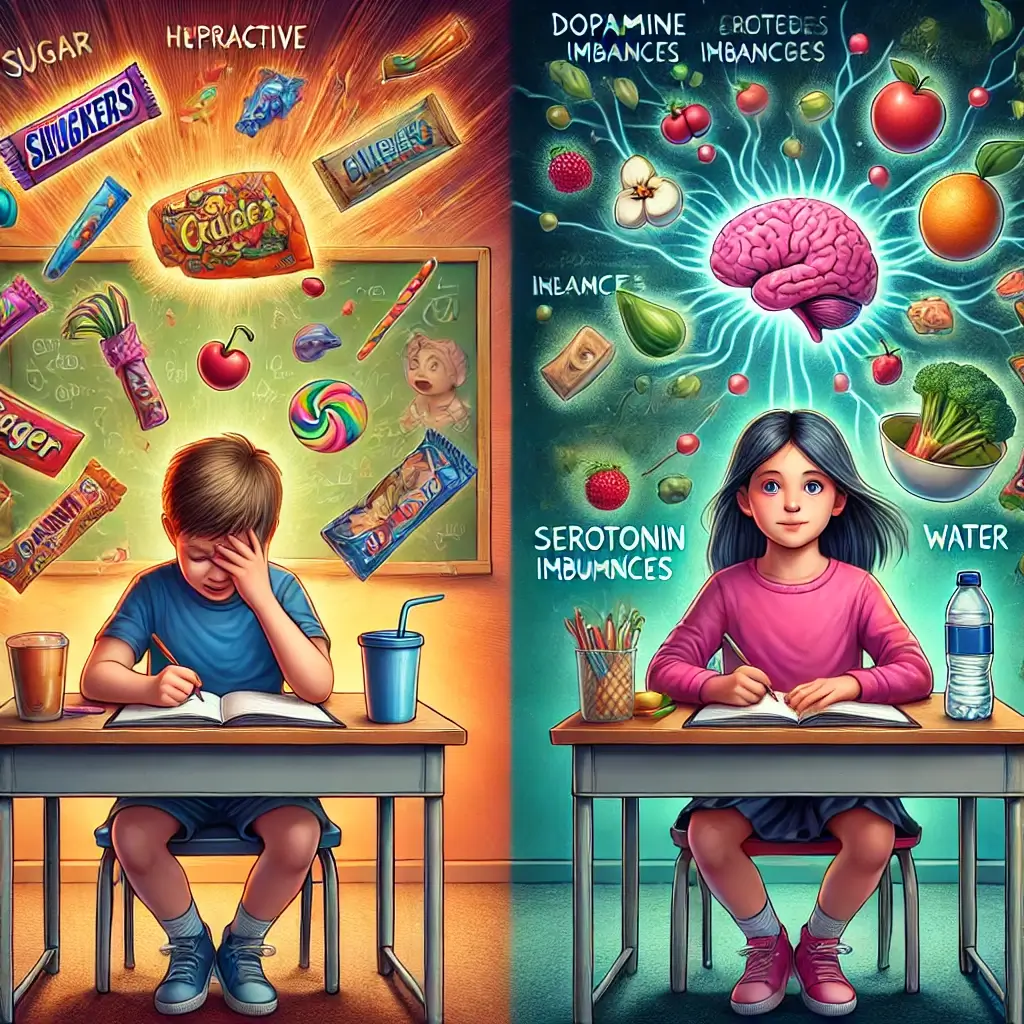Understanding Sugar’s Impact on Modern Children
In today’s fast-paced world, children are increasingly exposed to diets rich in added sugars, often hidden in seemingly healthy snacks and beverages. While sugar has been historically associated with energy boosts and celebratory treats, growing evidence paints a different picture of its impact on child development. From concentration challenges to behavioral shifts, the effects of sugar consumption on child development are far-reaching. For parents, educators, and pediatricians, understanding this link is crucial for fostering environments that support children’s holistic growth.
Behavioral Changes and Research Insights
Behavioral issues such as mood swings, hyperactivity, and attention deficits are frequently reported in children with high-sugar diets. These issues have not only sparked concern but have also prompted extensive research. According to the 2024 Journal of Behavioral Nutrition, a significant proportion of children’s behavioral challenges related to dietary patterns can be traced back to dietary patterns that destabilize blood sugar levels. “The modern diet often fails children by prioritizing convenience over nutritional value,” asserts Dr. Michael Chen, a leading behavioral psychologist. This article explores the underlying mechanisms of sugar’s influence on children’s minds and bodies, shedding light on actionable strategies and the latest research developments.
Scientific Evidence and Study Results
Scientific studies in recent years have provided compelling evidence of the connection between sugar consumption and developmental outcomes in children. A comprehensive meta-analysis published in Cognitive Health Quarterly (2024) reviewed data from over 25 studies involving children aged 3-12. The analysis revealed that children consuming high-sugar diets experienced cognitive decline in cognitive and behavioral benchmarks, including a 38% decrease in attention spans, 40% rise in mood instability, and notable challenges in information retention and problem-solving tasks.
Neuroscience and Blood Sugar Impact
Further, research by the Behavioral Pediatrics Journal (2024) highlighted a direct relationship between sugar-induced blood sugar fluctuations and neurotransmitter imbalance. These fluctuations affect dopamine and serotonin levels, chemicals critical to emotional regulation and learning. Dr. Elena Rodriguez, a pediatric neurologist, notes, “What we feed our children profoundly influences their brain chemistry and capacity to process information. Sugar disrupts this delicate balance.”
Long-term Study Findings
One of the most cited studies in this area, conducted by the Child Development Review (2024), followed 4,500 school-aged children for 18 months. It concluded that consistent high-sugar diets correlated with increased impulsivity and hyperactivity. The researchers emphasized the importance of early intervention, suggesting that dietary changes yield measurable improvements in weeks.
Practical Solutions for Sugar Management
For caregivers looking to counteract the negative effects of sugar, several evidence-based strategies for sugar reduction are available, including dietary substitutions, meal structuring, education and awareness, and collaboration with schools.
Innovative Approaches and Technology
The growing awareness of sugar’s impact has prompted innovative responses. In 2024, the Global Nutrition Alliance launched a campaign targeting sugar reduction in school-aged children. Partnering with local governments, this initiative introduced pilot programs replacing sugary snacks in cafeterias with nutrient-rich options. Preliminary reports indicate that participating schools observed a 30% reduction in behavioral referrals within three months.
Modern Monitoring Solutions
Additionally, advancements in wearable technology for monitoring dietary habits now enable parents to monitor their child’s dietary habits. Devices such as smart bracelets measure blood sugar fluctuations, offering real-time feedback. “These tools empower families to make informed decisions,” says nutritionist Dr. Sarah Thompson, “bridging the gap between knowledge and actionable change.”
Future Perspectives and Actions
Sugar’s pervasive role in modern diets necessitates a proactive approach to safeguard children’s mental and physical health. Research unequivocally links high sugar consumption with adverse behavioral effects on behavior, concentration, and emotional regulation. However, hope lies in evidence-based strategies, from dietary adjustments to educational initiatives and technological advancements. As Dr. Rodriguez aptly states, “Small, consistent changes in dietary habits can lead to transformative outcomes for children.” Through collaborative efforts between families, schools, and policymakers, we can create a foundation for healthier futures.
References and Citations
Cognitive Health Quarterly (2024)
Behavioral Pediatrics Journal (2024)
Child Development Review (2024)
Global Nutrition Alliance (2024)
Journal of Behavioral Nutrition (2024)




